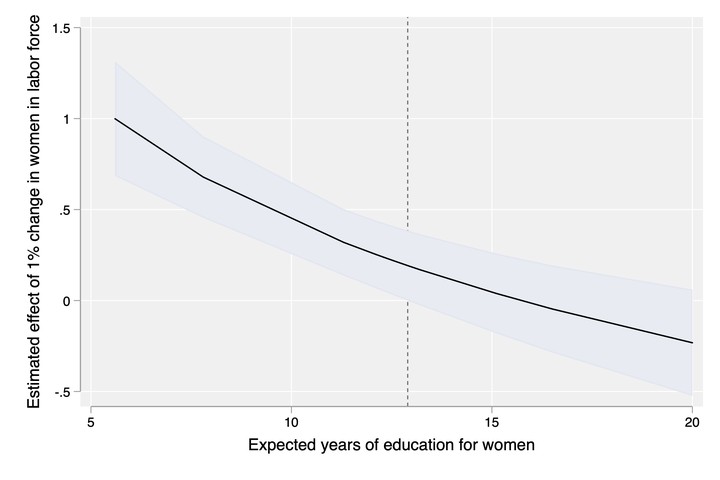Does Gender Climate Influence Climate Change? The Multidimensionality of Gender Equality and Its Countervailing Effects on the Carbon Intensity of Well-Being

Abstract
The carbon intensity of well-being is an increasingly popular way to measure the ecological efficiency of nations. Although research demonstrates that economic development typically reduces this efficiency, little research has explored the extent to which social equality improves it. This study uses panel data for 70 nations between 1995 and 2013 to assess how various aspects of gender equality affect the ecological efficiency of nations. Our findings indicate that across all nations, increases in the percentage of women in parliament and expected years of schooling reduce CIWB; however, increases in the percentage of women in the labor force increase CIWB. Our results further show that the relationship between different dimensions of gender equality and CIWB differs between more developed and less developed nations. Finally, we find that increases in the number of women in parliament and women’s education attenuate the relationship between women’s labor force participation and CIWB. We discuss the variation in our results by reviewing relevant eco-gender literatures and feminist economics.